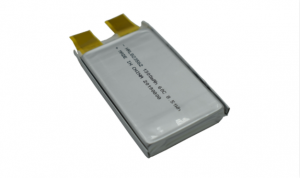When a lithium battery is charged, when the voltage increases, the positive and negative electrodes become extremely strong redox states, so the material is easily destabilized.
(1) When overcharging, charging beyond the specified time is called “overcharging”. The battery generates heat and the electrolyte produces flammable gas. Generally speaking, in an overcharged battery, the reduction reaction between the electrolyte and the negative electrode occurs first, then the thermal decomposition of the electrolyte, the oxidative decomposition between the electrolyte and the positive electrode, the thermal decomposition of the negative electrode, and the thermal decomposition of the positive electrode. The internal short circuit is caused by the melt flow of the separator.
Positive electrode: Heat generated by the oxidation of the electrolyte and the destruction of the crystal structure.
Negative electrode: precipitation of metallic lithium.
(2) Over discharge. Excessive discharge is called “overdischarge”, and heat is the same as “overcharge”.
Positive electrode: Cobalt smelting
Negative electrode: the elution of the current collector (copper).
In short, in either case, the electrodes, electrolytes, and separators are acid-melted due to heat, resulting in an internal short circuit. The Joule heat generated at this time spreads around, and finally hits the flammable electrolyte (or the generated flammable gas) and catches fire. .
When heated from the outside due to fire or the like, inside the battery, the positive electrode material, electrolyte, and negative electrode material are independent and generate heat reactions with each other. The separator melts and the electrodes are short-circuited. At this time, the Joule heat begins to spread everywhere.
In addition, when the insulators and separators of the electrodes are damaged due to external shocks, they will not catch fire, but internal short-circuits and fires may sometimes occur during charging.
Due to the high energy density, the temperature rises sharply during a short circuit, and the electrolyte becomes an organic solvent, which is easy to catch fire.
Post time: Aug-28-2021





